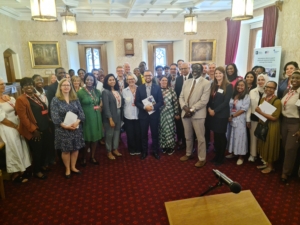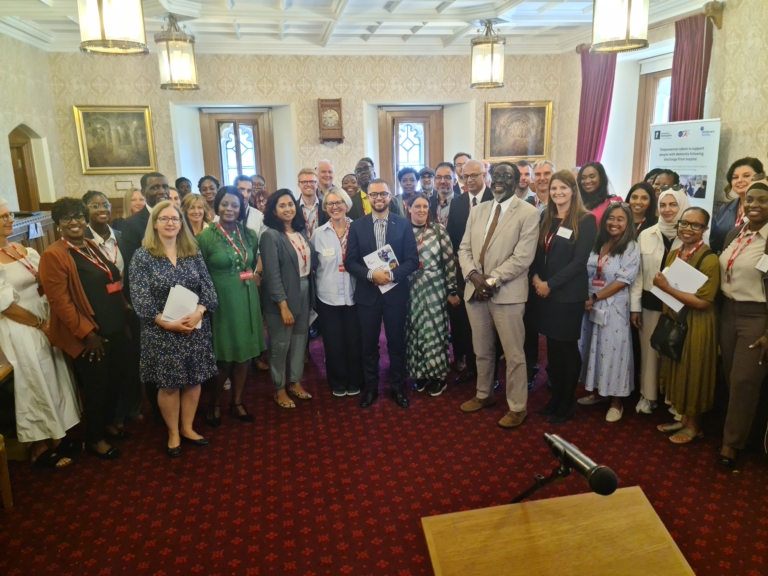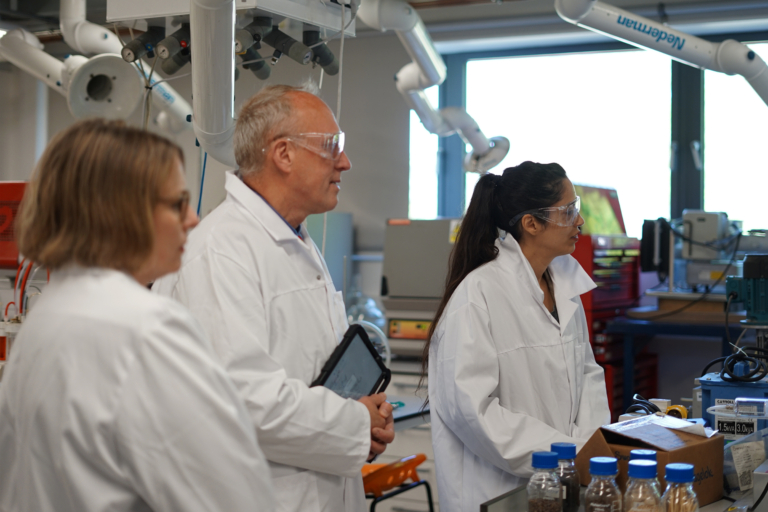New report reveals unseen roles HE and research technicians play in health and safety
- A new research report reveals insights from the higher education and research sector on the role of technicians in health and safety (H&S), with ten recommendations to support them with these vital responsibilities.
- Data shows 91% of technical staff, including 99% of technical managers, have H&S responsibilities, yet this is not always formally recognised by institutions.
- Surveyed technicians said they spent, on average, nearly a quarter of their time on health and safety activities.
- 35% of survey respondents said that better recognition of their role and duties in health and safety would have the greatest positive impact on technical staff working in H&S and 15% of respondents called for more training.
Creating and Maintaining Safe Environments: The Role of Technicians in Health and Safety has been published by the UKRI Research England funded MI TALENT programme and the Technician Commitment.
The national report reveals unprecedented insights into how technical staff in higher education and research support critical health and safety activities.
It evidences that skilled, specialised technical professionals are vital to the safe running of institutions and publishes ten recommendations to ensure this workforce is supported to maintain safe research and teaching spaces.
The report identifies challenges across four themes: roles and responsibilities, qualifications and training, value, recognition and representation and health and safety culture based on 1,448 survey responses and 36 in-depth interviews.
The main health and safety challenges identified were whether technicians were empowered to raise any concerns, recognition of health and safety responsibilities, time to effectively complete health and safety measures at work and limited training.
Catrin Harris, Research Fellow for MI TALENT said: “Technical staff play a vital role in higher education and research, supporting and delivering research and teaching as well as having roles in, amongst other areas, maintenance, infrastructure, and people management. The majority of technical staff also have at least some health and safety responsibilities as part of their role.
“Creating and maintaining safe environments in higher education and research should be a priority for institutions and the key role that technicians play in this should be recognised.
“The data in this report will be valuable to institutions to better understand these key roles and responsibilities, as well as to understand the needs of the technical community and how best to support and recognise their contributions.
“We’re confident that the ten evidence-based recommendations will serve as the basis to improve health and safety activities and culture and, ultimately, create safer environments for everyone.”
The ten recommendations listed in the report are:
- Empower Support: Managers, colleagues, and employers of technical staff must understand the time commitment required for health and safety tasks, actively backing and enabling these responsibilities.
- Visible Roles: Employers of technical personnel should ensure their pivotal roles and contributions to health and safety are visible and recognised.
- Accurate Job Descriptions: Employers should ensure that health and safety responsibilities are accurately reflected in technical job descriptions.
- Training and Development: Technical staff need access to comprehensive health and safety training, including pathways to external qualifications. Employers should ensure that appropriate training is available and accessible to them, and that ‘on the job’ time to complete health and safety training is supported.
- Leadership in Safety: Senior leaders should promote a culture of positive engagement with health and safety from their whole organisational community. Regular training and engagement in processes and with colleagues with health and safety responsibilities should be promoted.
- Resources: Employers of technical staff and technical managers should ensure that technical staff have the appropriate resources to ensure that their health and safety responsibilities can be carried out effectively.
- Teamwork: Employers, technicians, and other health and safety stakeholders should forge collaboration and communication channels, sharing best practices and lending mutual support. Solid teamwork cultivates a healthy working environment.
- Representation and Participation: Employers must ensure continuous representation of technical staff on health and safety committees, fostering active involvement.
- Transparent Fora: Organisations should ensure the creation of platforms for open and transparent health and safety dialogues that focus on improvement and best practice sharing, steering clear of placing blame.
- External Recognition & Engagement: External organisations should recognise and engage with the technical community, to provide recognition for their contributions to health and safety, and avenues for professional development.
Steven Hill, Director of Research at Research England, UKRI Research England added: “This report demonstrates the value of technicians in safe and effective research, innovation and teaching. Through its ten recommendations, employers of technicians can work towards a best practice approach across the sector to creating and maintaining safe environments which will ultimately strengthen the infrastructure behind the UK’s research and innovation ecosystem.”
Dr Kelly Vere, Project Lead for MI TALENT and University Director of Technical Strategy for University of Nottingham added: “We recognise institutions will have their own robust health and safety policies in place, but this data provides additional insights on the role of technicians in institutions; a workforce which has long been underrepresented and where technical role profiles vary considerably across the sector.
“The data in this report offer new insights that provide an opportunity to enhance existing procedures, facilitate discussions with technical staff on training opportunities to create safer research and teaching environments whilst improving research culture.
“This report also adds to the wealth of insights published by the MI TALENT programme including the Role of Technicians in Knowledge Exchange, Research Culture: A Technician Lens, the landmark TALENT Commission report, The Value of Implementing the TALENT Commission Recommendations and Funding Technical Staff in Research.”
ENDS
NOTES TO EDITORS:
Current data, while limited, suggests more than 30,000 technical staff work in UK universities across a range of job roles and subject disciplines, encompassing medicine, science, IT, engineering and the creative arts. The Gatsby Charitable Foundation suggests there are between 1.5 and 2.2 million people working in the UK as technicians across a wide variety of sectors and industries.
Recommended reading and previously published reports available at https://www.mitalent.ac.uk/Resources
MI TALENT is a Research England funded programme which launched in 2020.
Find out more about TALENT at www.mitalent.ac.uk






